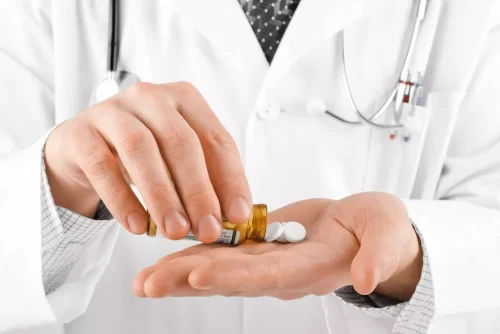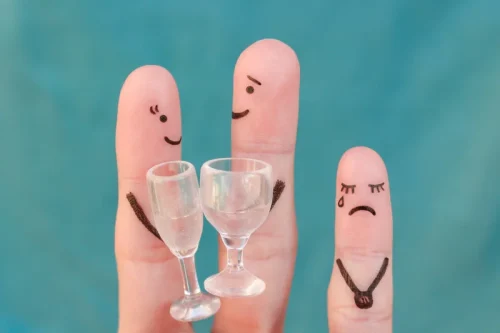
The higher the alcohol content, the greater this effect will be. Fortunately, researchers have discovered these effects are not sustained over multiple drinks. Alcohol interferes with the brain’s ability to control body temperature. If you drink alcohol on a hot day, your body won’t be able to adjust and control your internal temperature effectively, which increases the risk of heat stroke. Using electrolytes while drinking alcohol may be especially beneficial for individuals with high blood pressure and other cardiovascular issues. The Centers for Disease Control and Prevention (CDC) recommends that men don’t exceed two alcoholic drinks in a day and that women limit alcoholic beverages to one drink or less.
How to Rehydrate Fast After Drinking
Most people make 1 to 3 quarts of urine per day, yet people with diabetes insipidus can make up to 20 quarts of urine per day. If you cannot keep up https://ecosoberhouse.com/article/5-stages-of-alcoholism/ with your fluid losses by drinking enough liquids, you can become dehydrated. Many of these medications work by preventing reabsorption of fluids.
How Is Belly Button Pain Diagnosed?

Exercise causes fluid loss, and combining it with alcohol increases the risk of dehydration, which is detrimental to muscle tissue and can slow down recovery. In addition, increased urination can cause the loss of electrolytes, especially potassium and sodium, which are crucial for maintaining the body’s fluid balance. Piano recommends consuming no more than one alcoholic beverage over the course of a flight.
- Due to the lower alcohol content, beer will dehydrate you slightly less than liquor.
- However, research is mixed on whether these beverages increase urine output significantly.
- As relaxing as it might seem, that drink might be doing more harm than good.
- Alternatively, you can make your own electrolyte drink or add electrolytes to carbonated water if you enjoy the thirst-quenching illusion of carbonated soft drinks.
- These drinks can help to restore the body’s balance of fluids and minerals, reducing the risk of dehydration.
Binge drinking
An umbilical hernia occurs when a portion of the intestines or abdominal tissue pushes through a weak spot in the abdominal muscles near the belly button. It doesn’t always cause symptoms, but you may notice a small bump under the skin near your belly button or experience pain and discomfort during physical activity. The most common symptom of indigestion is a burning pain or a sensation of uncomfortable fullness in the upper abdomen. Your belly button, or navel, sits in the center of your abdomen (belly). It is a scar that marks the point where your umbilical cord was connected to your body before birth.
Loss of Coordination
- It can happen when you don’t drink enough or lose a lot of fluids due to exercise, heat, diarrhea, or other reasons.
- Because the antidiuretic effects kick in more slowly, you are less likely to experience dehydration.
- Hangover symptoms are the result of several factors, two of which are dehydration and the toxic effects of alcohol on the body.
- Drinking alcohol dehydrates you, and consuming alcoholic beverages typically causes dehydration-related hangover symptoms, including headaches, low energy, a rapid heartbeat, dry mouth, and dizziness.
- Knowing and listening to your own body is the best way to prevent a hydration mishap — or really, any medical mishap.
- But it’s different from a hangover, which may or may not include a headache.
It’s not necessary to have all the above symptoms before seeking medical help. A person with alcohol poisoning who has passed out or can’t wake up could die. Fainting, confusion, or blood in vomit or diarrhea are signs that you need immediate medical attention.

The Risks of Mixing Alcohol and Summer Heat
Hangovers can be incredibly debilitating and can cause a range of symptoms, including nausea, vomiting, and sensitivity to light and sound. The severity of a hangover can vary depending on a number of factors, including the amount of alcohol consumed, the individual’s tolerance to alcohol, and the presence of other substances in the body. Significantly high levels of caffeine intake may contribute to dehydration by stimulating the body to release more liquid than usual. But ask your healthcare professional if this is safe for you and how much medicine is best for you. These medicines may not work well together with other medicines you take.
It’s a sweltering day and you’re soaking in the sun with friends and family. To help beat the heat, you reach in the cooler and fish out an ice-cold beer. “If you have heart failure or issues with fluid retention, talk to your doctor about optimal fluid regimens to remain hydrated in hot or warm weather,” advises Dr. Fertel. While it’s tempting to slurp down that iced mocha and think you’re properly hydrated, it’s not that easy. There are mixed opinions on whether exercise can help your body metabolize alcohol more rapidly (most likely, it can), but it’s worth a try and it’ll likely help you sober up. This is partly because our soil is incredibly depleted, so our fruits and veggies don’t have the mineral content they once did.
Some people may react to the tannins in wine, while others are sensitive to ethanol, the chemical found in alcohol that causes vasodilation, or the dilation of blood vessels. Additionally, dark liquors especially have high contents of congeners and tannins, which studies have shown to increase hangover symptoms (including dehydration). does red wine dehydrate you If your sweat output exceeds your fluid intake, you can become dehydrated. The rate people sweat and the composition of their sweat (how much sodium and other electrolytes) can vary widely. Dehydration causes imbalances in electrolytes (charged minerals in the blood and body fluids involved in many body processes).

However, research is mixed on the hydrating effects of certain beverages. While all liquids can help maintain hydration status, some may be more beneficial than others. While water is important, you also need to get electrolytes — think sodium, potassium, calcium and magnesium chloride — from fruits and vegetables.
- If your pancreas and liver don’t function properly due to pancreatitis or liver disease, you could experience low blood sugar, or hypoglycemia.
- Besides dehydration, alcohol can have other negative effects on the body.
- Drinking 2–3 cups of coffee a day may be an acceptable practice to maintain moderate coffee consumption.
- If you’ve been drinking and are experiencing alcohol dehydration symptoms, you need to restore your body’s fluid balance.
- Whether you’re trying to pass time or ease anxiety, a drink could make your in-flight experience even worse.
Comments are closed.